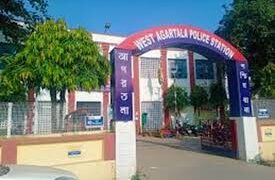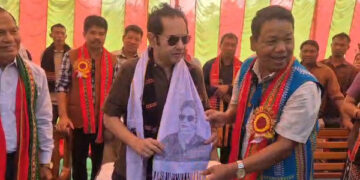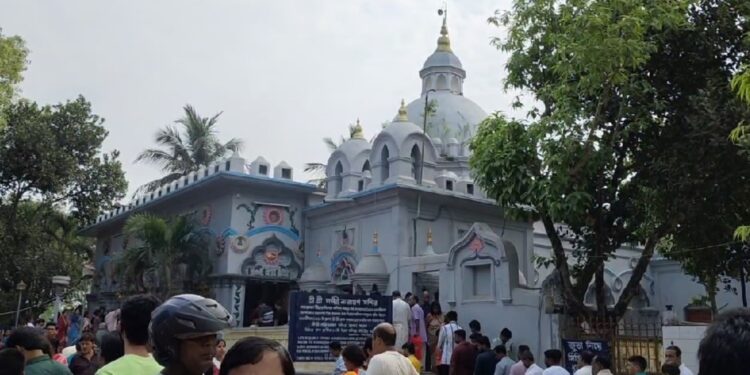Agartala, April 15: In a vibrant display of faith and festivity, thousands of Hindu Bengalis thronged the historic Laxmi-Narayan temple in Agartala on Tuesday to mark Poila Boishakh, the Bengali New Year, ushering in the year 1432 of the Bengali Sakabdi calendar.
Considered one of the most auspicious days in the Bengali calendar, Poila Boishakh holds deep cultural and religious significance. It is believed that on this day, Lord Brahma, the Creator in Hindu mythology, began the creation of the universe.
Dressed in new traditional attire, men, women, and children visited temples across the city to offer prayers and seek divine blessings for a prosperous year. Homes are meticulously cleaned and adorned with floral patterns and alpana designs to welcome Goddess Lakshmi and Lord Ganesha, symbolizing wealth and wisdom.
In a heartfelt tradition, women applied vermilion (sindoor) on each other’s foreheads, praying for long and happy lives for their loved ones, while auspicious signs were drawn on temple walls to ensure harmony and prosperity in family life.
Shopkeepers too marked the day with devotion, performing rituals in front of their ‘Hal Khata’ (accounts books), where priests inscribed the sacred Swastik symbol in vermilion—invoking blessings from Laxmi-Narayan and Ganesha for successful business ventures in the coming year.
Adding to the festive cheer, a small fair was organized near the temple premises. Sweet shops witnessed long queues as people eagerly bought sweet packets to share with friends and family, wishing one another joy and success in the new year.
Poila Boishakh, also known as Nôbobôrsho, is not just a festival but a cultural bridge that unites Bengalis across regions and religions—from Tripura and West Bengal to Bangladesh and parts of Assam.
The day also coincides with other regional harvest and New Year festivals—Vaisakhi in Punjab, Bihu in Assam, and Vishu in Kerala—reflecting India’s rich tapestry of cultural unity in diversity.





































